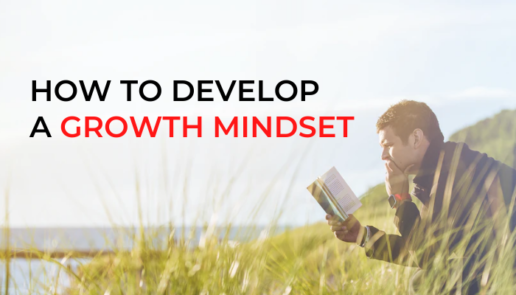How to Change The Way You Think
[bctt tweet="Successful people think differently than unsuccessful people. " username="venchito14"]
It may seem obvious, but this starts a changed life. If you always think like how the crowd thinks, chances are you will get results like what the crowd gets.
So if you want to see better results next in your professional and personal life, start changing the way you think -- and not only changing it but making sure you upgrade your thinking.
Changed thinking is not automatic. It doesn’t happen overnight. You have to be consistent in thinking creatively, positively, widely.. It’s not that easy, but it is doable. You can change the way you think.
Changed thinking is difficult. But its pay off is worthy of your investment.
Because once you upgrade your thinking, you’re gonna experience a change in your potentials (unleashing your potentials), and a change in your performance whether you’re working, doing personal stuff, or investing time in your hobbies.
So let me give you 5 things to consider in changing the way you think.
Upgrade the size of your thinking
Change the size of your thinking.
Do not remain small next year. Make your thinking bigger than this year’s thinking. Don’t think small of yourself, small of your capabilities, small of your contributions.
Have what we call, “big picture thinking”. Go beyond your limits today. Increase the size of your thinking by expanding your knowledge to other skills, other industries, by learning from mentors, and coaches. By reading books.
Listen intentionally when other people give you lessons. Do not downsize your thinking. You can expand the size of your thinking.
Are you thinking about a bigger picture or thinking small of yourself, of your experiences, and of your world? Upgrade the size of your thinking.
Upgrade the scope of your thinking
The reason why you need to upgrade the scope of your thinking is to have clarity. A clear mind helps you focus on things that matter in your life. The reason why most people don’t have clear goals in life is because of their cluttered thinking.
Their mind is full of distractions, excuses -- that won’t really help them get to where they want to be.
To upgrade your thinking, you don’t allow your mind to wander on things that are just distractions. If you could limit your time screen on phones, your entertainment time, in order for you to do the things you said you will do, that’s a good way to upgrade your thinking.
Is there clarity in the way you think? Are you focused or just distracted? Upgrade the scope of your thinking.
Upgrade the strategy of your thinking
We need both efforts and strategy to excel and go to the next level of what we are doing right now.
The strategy makes you efficient and effective at work. The strategy makes you a smart professional -- that you’re not just working hard, but you have a strategy to work smart.
The way to upgrade your strategy is to ask yourself this question every day,
“How can make this better?”
If you are always thinking about how you can level up every day, you have to be thinking of making this better -- whether that is making your work better, your output better, how you develop relationships -- you’re assessing yourself if you are upgrading your strategy.
The strategy must be upgraded from time to time. So upgrade the strategy of your thinking.
Upgrade to selfless thinking.
Think not just about things. Think about other people as well. When you change the way you think, you’re not just thinking about yourself, you’re also thinking about other people.
You now become selfless, and not just selfish.
The question you constantly have to think is, “how can make my life impact other people?”
That is a question of significance - to bringing value to the marketplace, to this world.
The more you become selfless in the way you think, the more impact you can make today, and next year.
So upgrade to selfless thinking.
Upgrade to shared thinking
No man is an island. This is very true as well with how you think.
Upgrade from solo thinking to shared thinking.
When you share your thoughts, your ideas, your content, your suggestions, you increase the capacity of your thinking - thus, upgrading it.
When you share, it’s like giving water to thirsty people. Then you fill your cup again, then share again.
The more you share, the more you realize you’re reaching your fullest potential, you are growing step by step, move by move.
So are there any ideas, insights, and wisdom you can share with others?
[optin-monster slug="gtgdnfuwgles4rljuc85"]
How To Deal With Stress
Are you stressed right now? Is there such a thing as a stress-free life?
In this blog post, we’re going to talk about how to deal with stress.
Every one of us faces some kind of stress every single day. In fact, dealing with the stressors of life only proves that we are still living.
And so when we talk about stress management, it is basically the ability to manage demands and abilities.
Demands meaning your work schedules, time with your family, your personal (or me) time to improve yourself, handling your finances, dealing with difficult people.
While your abilities focused on you - your attitude, your disposition - how are you able to cope up with the demands
So in order to manage stress, we need to have the ability to cope up with the demands of life.
There are two kinds of stress. Eustress (positive stress) and destress (negative stress).
If your demands are higher or greater than your abilities, you experience distress - negative stress.
But if your abilities are higher or greater than your demands - meaning you cope up with your demands, this gives you eustress or positive stress.
What you and I want to accomplish is positive stress. That is to have abilities to be able to cope with the demands of life.
Let me give you tips on how you can deal with stress.
Decide wisely with tradeoffs
Stress management involves decision making. The reason why some people get so many demands is that they allow it to come to our lives. They say yes to every commitment or schedule.
You and I need to develop the ability to say no. This is very difficult in the world of distractions and overcommitments. But if you want to lessen your demands, you have to say no.
And saying no would require you to accept the consequences of another decision.
For example, you’ve got to have a meeting with your boss. While suddenly you face a dilemma - an urgent issue with a family member. Saying no to your boss has its consequences. Because the next morning, you may be reprimanded by your boss or perhaps have to work longer hours to finish your pending tasks.
This is what you call tradeoffs. Whenever you say yes to one thing - which gives you the benefit, you’re saying “no” to another thing - which has its own consequence.
Elevate your emotional quotient
EQ is your ability to manage your emotions. Part of emotional management is being aware of your emotional triggers.
When you have too many demands to handle, knowing what stresses you emotionally is important. These are some of the questions you can ask yourself:
- Where is this negative emotion originated?
- How can you turn this negative emotion into positive emotion?
- How can I respond better to the situation, rather than just react to it?
- What are my emotional triggers?
Asking yourself these questions help you to elevate your EQ on a daily basis.
Actively prepare
[bctt tweet="To increase your abilities and cope up with demands, you need to constantly prepare." username="venchito14"]
That means you start your routines right at the beginning of the day so you can make sure your heart, mind, soul, body, and spirit are aligned and mature.
Because maturity brings more abilities. A mature mind brings more wisdom. A mature body brings more strength. A mature spirit brings more power. A mature soul brings more peace.
What are the things that you are preparing now for the future?
Actively prepare. Prepare now. Prepare today. Prepare for the future.
Live rightly
There are stress factors that are caused by the wrong decisions in life. And these wrong decisions turn out to be one of the biggest mistakes or regrets.
So it’s very important that we go back to the foundation of living for us, not to experience more regrets, especially if we’ve been through the same situation before.
Living rightly you have to know your core values. What do you really believe in? Because if you have your core values, you can set principles in life that will be the basis of your living.
Do you have principles to live by? What are your core values? When a situation comes that tests your character, what do you do? To live rightly, you need to have your own set of values.
Mine would be faith, integrity, excellence. How about you?
Because if you don’t have one, you would be making a lot more mistakes which cause more negatives to stress in your life.
[optin-monster slug="gtgdnfuwgles4rljuc85"]
How to Develop A Growth Mindset
Every action and every result of your life starts with your mind. In this new episode, let’s talk about how to cultivate your growth mindset:
- even if you don’t know where to start in personal growth
- even if you are not an expert
- and even if you think you’re not good enough
Carol Dweck in this book, “Mindset: The New Psychology of Success” shared that a person has two mindsets: a fixed mindset and a growth mindset.
And today, we’ll look at some tips on how we can cultivate this growth mindset. Some of the things I’ll share with you will come from the book itself and my own personal experiences.
Let’s proceed to four tips on how to cultivate a growth mindset using this acronym: GROW.
Gain lessons from failures
If you don’t fail, you are not living. That doesn’t that you intentionally fail, that’s not we are talking about here.
But rather to intentionally learn from your failures.
A person with a growth mindset has this ability to connect his failures to his present situations as well as to his future endeavors by reflecting on lessons.
Each time you fail, ask this important question: what is it that I can learn from this failure?
And when you experience these failures, it’s important to develop persistence over time. You’ll face setbacks, but you have to come back quickly. Setbacks should lead to a comeback if you have your own process of getting up.
You don’t have to wait for another failure to prepare yourself, you can now prepare today. Gain lessons from failures.
Recognize challenges as opportunities
[bctt tweet="Challenges should be viewed as opportunities for personal growth." username="venchito14"]
You’ve got to cultivate a mindset of viewing challenges as opportunities.
Opportunities for what? Opportunities for:
- Developing character. Like gold being refined through fire.
- Increasing competence. As you face challenges, you’re now seeing rooms for improvements, where it can give you insights on what to tweak or change in your current work setup.
- Building connections. Challenges are opportunities to connect and reconnect with people who can help you do your job.
Have a perspective of recognizing certain challenges as opportunities for growth.
Open for improvements
People with a growth mindset are open to rooms for improvement. They prioritize learning over seeking approval. If they can get feedback from people they trust the most, they’d politely do so.
It is an intentional way of putting yourself at risk when asking for feedback. As well all know, most feedback may be telling you the truth we all don’t want to know — but we actually need in order to grow.
Develop a growth mindset to receive constructive criticisms that are away ahead of their game in personal life. Get mentors and coaches who can speak to your life to see what are the things you missed out or overlooked — that when you’ve taken a chance to look at — you can now turn them into courses of action.
Another way to be open to improvements is to be inspired by other people’s success. Inspiration brings more improvements to our lives in our mind is open about it.
Work on abilities
People with a fixed mindset tend to look at their intelligence and talent as something to be permanent.
But a person with a growth mindset looks at intelligence and talent as dynamic — meaning they can work on their abilities.
Remember that every one of us has mastered a skill because we were able to work on our abilities. Day in and day out, you work on your abilities. You spent countless hours to get good at what you do.
Earlier, I shared that there is one secret key to grow quickly without you noticing.
Do you know what it is?
This key is very simple: surround yourself with growing people.
Growing people have a growth mindset. Without you noticing it, your behaviors and mindset change as you adapt to the group's common culture. So if you want to gain momentum in personal growth, start having a group of people with a growth mindset.
You Can't Go Wrong With These Four Resources
If there is one thing that I’m focusing on this year, it is the allocation of the limited resources that I have.
If I master how to

My productivity is directly proportional to how I manage these four resources below.
1. Money
We cannot afford to waste money elsewhere. Money should be put into its proper place.
You don’t have to be a rocket scientist to understand how to allocate your financial resource. There are plenty of educational materials from financial experts around the country who teach the right approach to handle wealth. Financial experts such as Randell Tiongson and Marvin Germo, which by the way are authors of best-selling financial books that I devoured during my free time, can help you gain the wisdom to approach wealth in its fundamentals properly.
I’m not a financial planner nor would I consider myself to be an expert in the field. But by learning from many valid resources, I was able to learn some fundamentals of money management.
I remembered when I was starting my career as a freelancer, I didn’t spend money on buying fancy things like watches, and expensive coffees. Even if I was able to afford stuff, I disciplined myself not to purchase them.
Not until the time that I had a good financial portfolio and was capable of buying some wants – which by the way is still part of my money allocation every month. I allocate a small percentage of what I have for leisure and entertainment.
Early on in my career, I invested a lot of money in learning – books, online courses, seminars both in my industry and on personal development – which has helped me a lot in building my networks, and in increasing my income sources year after year.
Where do you spend your money? Be sure to spend it on things that will add value to you as a person.
2. Time
Time is unredeemable if we lose it. That’s why we have to budget not just our money, but also our time.
Technology can distract us the most. Our devices, if we are not careful, can be used to steal our most precious time from activities that will help us achieve our success goals.
I was a victim of time self-robbery myself. I was a computer addict for almost more than a decade. And though for some people, it is a usual hobby to do, I’d say it robbed me hours that I should have spent on acquiring skills and learning new materials at an early age.
Do not rob yourself by wasting your time.
I always tell this during my talks in schools, “Wasted time is a missed opportunity to grow.” The time wasted should have been spent on activities that will help you grow and mature in business and in life.
Have you had any days when you feel like you haven’t accomplished much?
It’s unfulfilling and it can affect our psyche. Those unfulfilled tasks can distract you while you are having dinner with your friends at night – there are seemingly little regrets running in your head. Unaccomplished tasks due to wasted hours are dangerous.
I like Jim Rohn’s philosophy of time. He said this best, “Don’t start the year until you finish it.” Don’t start the month until you finish it. Don’t start the week until you finish it. Don’t start the day until you finish it.”
Always begin your day with the end in mind. Identify your most important activities and pursue them with your full effort and attention.
3. Attention
Simply observe. Everyone is glued to their screens. Their attention is either focused on two things: entertainment or education
To get the most out of every hour (time), it’s important to know where you will allocate your attention. You can be entertained the whole day but found out that it’s not the right platform to place the most of our attention to.
A simple tip is this: education can be an alternative entertainment. Some people who read books feel as if it’s entertainment for them. You and I always have a choice. Manage your attention effectively.
4. Energy
You can be the most productive person concerning managing your tasks (time), money, and attention, but if you can’t function well enough, you’ll miss them all.
I’m not physically fit, but I am striving hard to get there. I managed to eat nutritious foods and take vitamins daily to cope up with everything that I do. Otherwise, I’d suffer days in bed without accomplishing much.
Your energy should be managed as well. Don’t get all your commitments scheduled in one day if you know it’s unrealistic to do so with all the energy you’ve got. You may reschedule, if it’s possible, and have the essential activities be accomplished first.
Don’t let yourself be burnout. Rest. But don’t take it as a luxury, take rest as a necessity.
Here you go! So those are the four resources that you have to allocate effectively this year. What are your thoughts on this? I’d love to hear your comments below.
The Invisible Process

What you see on the surface does not tell you the entire happening. What is visible to you is not the complete story. It may be a huge part, but it does not give you the whole picture.
An almost-perfect performance on stage, a rag to riches story of a young businessman, great preaching, a sudden-viral video testimonial - all of these are the visible events.
But have you asked in one moment of your life, what is the invisible process behind all of their big events?
Because the great insight is found in what you don't see and don't know.
1. What they don't do vs. what they do
I asked one of my mentees what she doesn't do anymore since she became a Christian, I got a simple short answer: she doesn't get mad quickly.
It's that a good thing? How many Christians do you know who are still impatient for years when dealing with people?
Another example is one that I've had an encounter with our partner agency client in the U.S. I asked this very successful businessman on what he doesn't do anymore — he told me he doesn't watch movies with his family outside, they just rent local movies for free in their local library. What a frugal approach to life!
The moment you interview someone, don't just ask what they do, try asking what they don't do that everyone else around them does. You'll be surprised at great insights you'll discover.
2. Offstage vs. on stage
Preparation is different from performance. You see people perform on stage, but you don't see them prepare off-stage.
There are a lot of off-stage activities that they do on a regular basis that help them propel to the success level they are now.
I usually ask people for their daily routines and habits (I have another post about routines).
But, routines are consistent activities you regularly do. They are not glamorous. People may often find them as overly dull.
However, those sets of routines enable successful people to produce incredible results (in compounding effects as years pass by).
Another question you can ask a significant and successful person is this, "What are your daily routines or habits?". You'll find that their actions are what 97% of people don't do.
And next.
I liked off-stage or back-end people. They may not be in the spotlight and sometimes, they don't get much credit as compared to people on-stage.
So, don't just ask people on-stage, ask the staff who works behind the scenes. Their credibility and character are unseen and unknown - you can learn much from them.
3. What they post vs. what they don't post online
Reality-wise, the entirety of a person's life is not presented well in the mainstream (social or media).
With people living their lives to the fullest, they don't have much time to post daily on their Instagram or Facebook My-Day Stories. They are busy making significant activities and memories with people.
In most cases, their best achievements are found nowhere online.
It is best to meet your desired mentors and leaders offline. Ask questions offline. Take them on dinner. Your 1-hour time spent with them off the social media scene is more significant learning experience than on your 4-hour combined chit-chats on social networks.
Have you desired to see and ask people about their invisible process? Comment your experiences below.
One Origin of Entitlement
Entitled - it is the word that many business leaders generally describe millennials today.
While I don't fully agree in the generality of the description because I've seen it first hand that there are young people who are very hardworking, diligent in what they do, respectful to the older generation and as far as output is concerned, they deliver results on time.
Reality wise, we couldn't deny the fact that there are people (in all generations) who are entitled in life and business.
The question we need to answer is, "what makes them all entitled?"
There is one source of this entitlement — self-serving mindset.
When work has become a channel of how you want to be served, rather than you serving others, you begin the path of entitlement.
Francis Kong describes work at its very core, "Work is the expenditure of energy in creating something good and of value that may make a positive difference on others."
When you start to think and act as if the world owes you something, entitlement starts to kick in.
It's difficult to remove such mindset, in fact, the more you step onto a higher level of success, there is an urge and temptation to seek for selfish desires and pleasures to the point of stepping other people's shoes.
What can we do about it? If you relate to any of these, here are some tips to help you out.
1. Distant yourself from whiners and seemingly-entitled people
It is not an easy thing to do, but if you want a different kind of life — a life of an honorable character, it is a must thing to do.
You can quickly smell entitled people; they are the ones who go out establishing their authority and stature without performing well and contributing much to the team and the organization.
They are the whiners and ones who would look for people to blame when they make mistakes. In other words, they are not responsible enough to rectify what they've done wrong.
Distant yourself from them. Seek for friends and companions who have the same core values as yours - all-out service.
2. Remember the "world doesn't owe you anything."
You can begin complaining all day that you should receive all that you want because of who you are and what you have done.
Far from reality, you won't get them all.
I like what Jim Rohn says, "Life doesn't give you what you want, life doesn't give you what you need, life gives you what you deserve."
When you think you deserve the salary increase or promotion when you have done only 2-hour work every day for the entire year, you're seeking yourself pleasurable yet undeserved rewards.
Of course, we don't deserve anything at all, but rewards are for those who work hard enough with integrity.
We sometimes need to check our prideful heart and see if there are any self-seeking desires.
3. Change your mindset and develop your attitude
It starts with your mindset and heart. Rather than being self-centered all the time, think of ways on how you can contribute to the organization.
You may be unpopular, and you may not get the credits you deserve, it is always a matter of time before one person can see the outcome of your efforts. When your efforts produce incredible results that surpass the requirement given to you, you don't just achieve, you also grow yourself and develop your character.
When skills are honed every day, why not attitude?
Bring a positive and energetic attitude in what you do. You may see negative circumstances in your life, but that's part of life. Be joyful and give your best every day regardless of whether it is other people won't notice. Success is visible, but the process is invisible.
That's it for now!
Comment below your thoughts. I want to hear from you.
Follow me on on IG: https://www.instagram.com/venchito14/.
Subscribe to our newsletter below by entering your email address!
7 Lessons That I'll Bring This 2019
Now writing at 10:20 PM, less than two hours before 2019 starts.
After watching an investigatory film, I opened my Facebook messenger to see if there are any new messages. To my surprise, I got a handful of encouraging notes to continue what I've been producing with my content - a few tips here and there, advice from my own Facebook page, and now that I just came back to blogging, some good "how-to" articles to help people do better in business and in life.
As we end this year, let me give seven personal lessons I learned, may not all necessarily from this year, because some have been just emphasized (or relearned). A few lessons that are new to me, and most of all principles that I'll bring from 2018 to this year and to the rest of my years (hopefully they're still relevant until my last age).
1. More than the motivation: inspiration with discipline
To be honest, I've been part of a set of people who used to be looking for motivation from external sources - may it be finding and reading quotes of top personalities (speakers/authors/ministers), reading self-help books, watching videos, and chit-chatting people to get motivated.
However, in the days where you don't have the drive and will to keep moving forward and are being tempted to slack off the whole day (even while you're in the office), discipline is a must.
Discipline comes with the inspiration that pulls you toward a transformation and change that must be made. It lasts, and it may be hard at the beginning, but when you've always pushed yourself to do things right, you end up getting better results.
Self-discipline is one key to success. With discipline, you learn, you grow, and you move towards your goal.
Motivational part, in most cases, is just movement of emotions, is short-lived. It doesn't sustain your growth. You heard a great speaker in a seminar, then once he went off the stage, your emotions die down, and so that temporary motivation goes down.
With inspiration that is accompanied with discipline, you draw something from the inside - your purpose, your core values, your mission and vision in life. And with the right thinking and proper attitude and skills, you combine them all to do what you can do best every single day.
2. Get wise counsel
I don't know everything. And even in my fast-paced learning moments, I can't assure myself I could understand how to manage ambiguities in life. There are instances when I don't know what to do, and the only way to make the right decisions is to ask for counsel and advice from trusted and credible people.
Why do I have to emphasize trusted and credible? Because not all of the people around you are credible — they may listen to your stories, but haven't gone through the almost same problems that you face. The ones that are credible are the people who've had experiences similar to yours, overcame difficulties if there are, and they have the same core values — these are the ones you and I should be looking for.
And trusted — you know people you've told your secrets before, and later on, found out that they shared it away to their friends? This is the saddening truth of life.
Get counsel from as many godly, trusted and credible people so you would have different point views, pros and cons if you do this and that, be able to see your blindspots (we all have them, and we should all be aware) and from this, you and I will make up our minds with the guidance of the Lord.
3. Face problems head-on
I liked what Pastor Dennis said in his Instagram post, "Life is never kind to the areas we neglect."
One neglect leads to another. And little did we know, it is one beginning of an unexpected disaster in our lives.
If there are things that have to be fixed right away, do not neglect solving problems. Be intentional in facing them. Though we have the option to run away from it, sooner or later, we'll encounter just the same problem, but now a bigger and wider one to solve.
In my line of work, we encounter different business problems, different clients with different personalities and issues in their businesses. I couldn't just choose running away as my option. I have to talk to my colleagues, get them involved and make a firm decision on how to solve the issue.
4. Develop yourself so you can develop others; lead yourself so you can lead others
The good thing with reading books from different authors about one subject area (e.g., leadership) is that you'll be able to widen your perspective on certain things that include best practices, relevant issues, and how the author addresses each need.
One common denominator that I've found to be true in all books is this point - lead yourself so you can lead others well.
Leading yourself is not bragging your position, your rights, and your abilities. You don't drive yourself to prideful situations.
You lead yourself to servicing many people, to self-denial, to self-sacrifice, and to self-development. Because once you grow and become more valuable, you can add significant value to a friendship, mentorship, and leadership in all areas. The value itself once applied and taught to subordinates will bring tremendous growth to your organization.
5. Be careful with who you listen and watch
These days is the age that we can Google everything we want to know. But not wisdom and insights.
It takes some time to identify who is telling the truth and who is just giving you shallow advice. It takes some critical thinking skills to separate the wheat from the chaff, and bones from the meat.
That is why learning is important for you to see both sides of the story and issue.
More ideas aren't equated to better ideas. Some ideas are just cluttered that can confuse the mind and misdirect to its intended purpose. Some ideas are shallow and don't have any substance.
Be careful with what you put into your mind.
By God's grace, I have become more careful and discerning this year than last year.
6. Simplify productivity
We sometimes overcomplicate things. And yes, I do that most of the time.
One example is that I always lean on tools and devices to improve my productivity for the past years. Without several apps and offline tools, I tend to lose focus and knew for sure I couldn't accomplish my big priorities in the day.
This year, I have simplified things. I use my journal where I put all my priorities (Big 3) for the day. And with a little help of Google Calendar to schedule activities, I could easily see where my commitments are in place. Fewer tools, more productivity.
Two weeks ago, I purchased my own set of Full Focus Planners from the Michael Hyatt team - helping me set my goals in writing (both achievement and habit goals), put my daily priorities and schedules on paper. A planner, journal and a calendar - classic yet helpful.
Because productivity is not about the tools, it is about the system and the person doing it.
These tools, whether they are free or not, won't be a big help, in my opinion, without self-discipline and 20,000 feet perspective on your goals for the year.
7. Build your foundation and know life essentials
What brings me hope? What keeps me going? Who am I? Why do I need to do all that I am doing? Purpose, visions, mission, goals, identity, morality (ethics) — though you and I heard them all the time from many sources, if they are not determined and clarified, we can easily be swayed by the wind.
What is essential to you? What is essential to me? With all the material things in this world, what makes your life worth-while to live?
If testings come and we're not prepared to answer those mentioned above basic existential questions of life, we are in trouble.
So I ask you to search for the deeper meaning of life. You only have 75 or 100 years to live, every hour and minute counts. So make it count.
< End —11:07 PM, will go back to watching movies. Happy New Year everyone!
Failures Don't Mean No Progress

It is this time of the year again when people are starting to write down their list of goals for next year. Resolutions, change record, reminders boxes - whatever you call it.
It's good to have one of them, but I always believe that the best way to start is first having a good review of what happened this year.
And there are two reasons why we don't take a run-down of the entire year and instead go swiftly to catch the year ahead.
First, we don't have any details or data to back up our claims and monitor our progress this year. Even if you've got an excellent photographic memory, it's nearly impossible to dump all financial numbers, scheduled activities, accomplishments, even best events you've had in one sitting.
We can make guesses, but it'll fail even to estimate.
Secondly, our hopes and lists for next year are more likely enticing to imagine and see, than being honest to yourself and see if there's progress now.
And possibly it is because you know to yourself, at some or most areas of your life, you've failed (you're entirely sure even if you don't have to remember them).
Just today, I took some numbers for myself to be able to assess what happened.
It may not include all domains of my life because some are hard to quantify like relationships with my family and my ministry,
Here's a good rundown:
- Business: 58.4% year over year growth (Goal in 2018: 100% YOY)
- Book reading: 40 out of 48 non-fiction books
- Conferences (industry-specific and self-improvement): 5 paid conferences out of 4 planned events to attend for the year
- Media interviews: 3 out of 4 (though which is uncontrollable)
- Speaking engagements: 11 out of 12 (mix of company trainings and inspirational talks)
There is only one goal that I think that was achieved, which is attending at least 4 seminars for self-growth.
The rest, they all fall short.
Being an analytical thinker, I'd always look at numbers and use it as a basis to determine if it's a success and failure.
But that shouldn't be how I review your goals.
Of course, numbers are essential. But there are quality measures I should also take an in-depth look. A few of which I should consider.
— "what beneficial habits have I started and sustained as of this date?
— "what attitude have I developed at work, in ministry and relationships?" Have I become more patient this year than last year?
— "How deeper my relationships are with my mentors and leaders in the ministry?" Have I let them lead, or all I do is to micromanage them?"
— "How deeper my faith in God this year than last year?"
— "Did I expand my networks this year and even cultivate better relationships with my business partner and training colleagues?
FAILURES DON'T MEAN NO PROGRESS.
We may look at numbers alone, but it doesn't say all that happens.
As my favorite classic speaker, Jim Rohn, says, "The ultimate achievement of a goal is not what you get, but who do you become."
It's a good thing to assess yourself on both sides: quantity and quality measures.
In my next post, I'll share some tips on how to set goals and how to stay motivated until the end of next year.
Why I Don't Believe in Most "20 Things to Do Before 30s" Articles?
Almost every day, I see listicles (articles with lists) about the "20 things you need to do before 30", or "50 books every entrepreneur should read" or "15 things you don't need to miss in your 20s".

I'm sure you've seen and read one of them too.
These lists are everywhere. They tell people that if you do this and that, you will become successful. or if you follow this advice, you will be rich. The contrary is when you don't do this, you will miss half of your life, or if you don't do this, you won't achieve what you desire in life.
I read some of these lists. I checked and see what other authors' views are. But I don't do them.
Here are my personal reasons. I don't ask you to buy it. Read mine, ponder it yourself and make up your own mind.
1. UNIQUENESS OF WHO, WHY AND WHAT
Because different people live their lives differently, it's almost impossible to happen that what I do is 100% exactly similar to what another person does.
I work, another person doesn't. I lead, others don't. I don't eat much, some do. Different location, different context, different age, and different set of goals.
In other words, what I do is unique in terms of context, timing, age, and location.
The same goes for my checklists. I do believe that our checklists should be unique, not because we just want to make it different from what other people have. But it is unique because it is based on who we are, why we do things and what we currently have.
When you have determined your identity (your who), you can identify your purpose and meaning (your why), and then look at your current resources, abilities, gifts, and skills (your what).
From that who, why and what, you create a checklist of your goals you want to achieve.
Therefore, my goals (and checklists) are uniquely different from the authors who wrote, "50 Things You Should Do Before 30s".
One of my goals perhaps included in one of their lists, but not all. And even if I got an exact similar list, the timing and season of achieving them are different.
2. SEASONS AND TIMING
30 is now a good number these days. Millennials shout 30!
When people say, "You need to reach and do this before 30 or 40s", it's like a motivational pump pushing everyone to reach their dreams quickly.
I do believe everyone can do great things, but not everyone will.
And if everyone will, not everyone will be able to have them all because of seasons and timing.
The law of sowing and reaping simply says that, "If you sow, you will reap." If I may add, if you don't sow, you will not reap.
If you have not planted seeds in your 20s, you will not be able to reap one, two or any of the items in articles, "20 or 30 things you need to have".
Even if you have planted the right kind of crops, you have to wait for your season of harvest. Same is true with your current list of goals. You sow good seeds, and reap a great harvest if it's in the season of harvest.
You don't force harvest but you can force yourself to plant seeds.
3. WRONG EXPECTATIONS
When your decision is solely based on other people's opinions, you may be setting up yourself for failures.
When you read hype articles, unconsciously, you are setting expectations on yourself to do this and that, to achieve this and that and to think this and that — copying what other people have included in their lists.
If you haven't pondered what you read well (not applied your critical thinking skill) and you neglect your own virtues and values, you are following a list of other peoples' goals without including YOU in the list.
Neglect as a Disease of Attitude
When we think of failure, we often imagine a one-time big event in our lives that shames us, disappoints us, and of which we never want to remember.
But are these failures just sprout out from somewhere or are they accumulations of wrong decisions, wrong thinking, and wrong views of things? Are there any small diseases or negatives we haven't handled properly that led to all sorts of failures?
Think about that for a second. Did you fail overnight or is there something in your life you've neglected before, and now you're facing its consequences?
Merriam defines NEGLECT as failing to care for properly, or simply - ignore.
Neglect is a daily disease, if not cured, can lead to some major troubles in our lives. Why did I say that?
Neglect is not taking seriously of SMALL things in our lives. We are too often concerned about BIG happenings - the big picture, big goals, big achievements, and yet, we don't care about small things - small acts, small to-dos, small encouragements.
When these small things aren't taken care of, they dig up holes one by one, until our BIG thing is nowhere to be found.
So, how can you cure this disease of attitude called neglect?
1. ACKNOWLEDGE THAT EVERYTHING MATTERS
There are things that may seemingly unimportant as of the moment, but they all do matter. Of course, one has to discern which of these small things matter to his or her life. One has to exercise his critical thinking skills.
However, after you ponder, if these small things are needed in your life, and they should be done immediately, don't cheat yourself into the thinking that they don't MATTER at all.
When that happens, you are in the business of excusing yourself for not doing.
This is not good, because the moment you remember them after a period of time, this NEGLECTED thing could be your REGRET.
2. REMEMBER "STILL HAVE LOTS OF TIME" IS A FALLACY
The reason why we neglect is that we have this manyana habit, thinking that we still have lots of time.
The truth is…. we don't have any.
Time is running so fast. It speeds up that we ended up being surprised we're on Ber months again.
The moment you're in a decision of whether to do something or not, remind yourself that you can never go back to that moment's same day, time, and place. Time machine is unreal. Get over that.
Recently, I've posted a Facebook status update that gives a thought on moments of time:
"Being there" means soaking yourself into what's happening. Observe, capture, and experience the moment.
Don't let moments pass by. You don't want a day full of "I should" moments.
Remember, time can be your "friend" or "enemy". You choose.
3. DECIDE TO DO THINGS NO MATTER WHAT
The 1-minute you spend taking your vitamins, reading a book for 30 minutes a day, and practicing your presentation three (or 10 or 20 times) requires a decision and discipline.
I understand those small routines in your life are not easy. But when you do them consistently, the results compound, and you never know what these small things have affected the way you think, you say, and you behave.
Remember successful people do what unsuccessful don't even try do - and that includes doing things no matter what.










